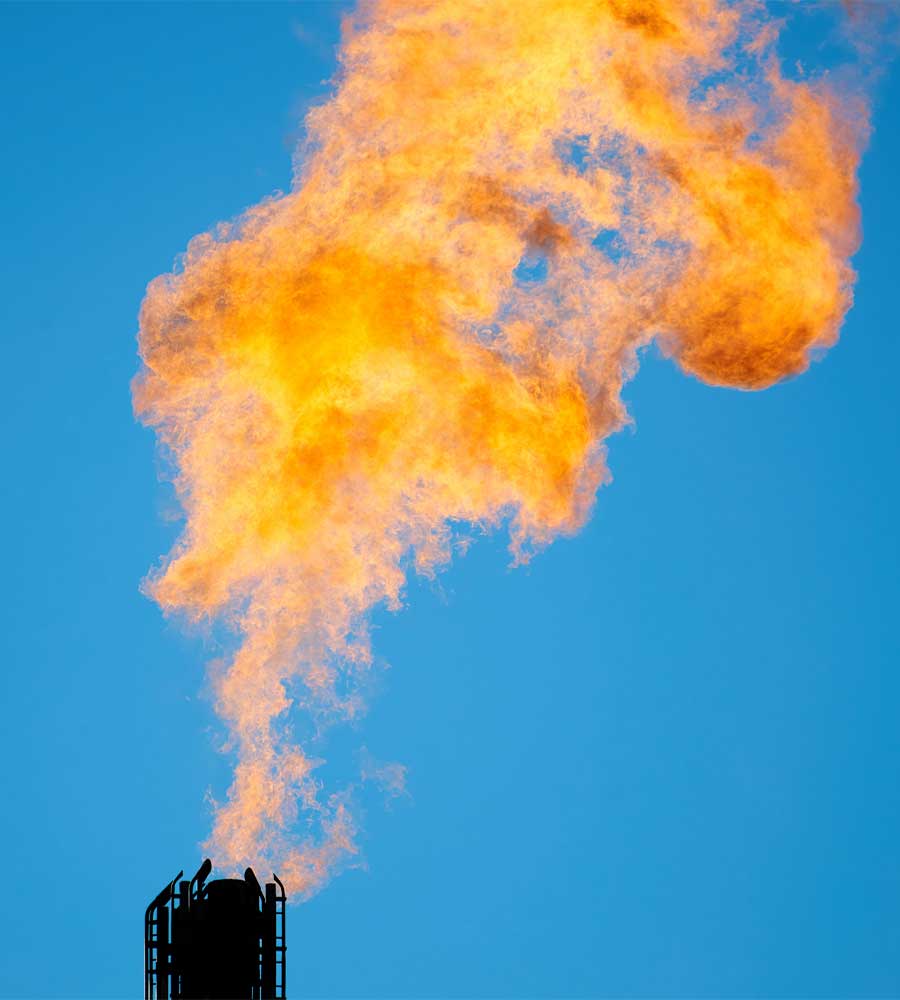Super pollutants
The impacts of climate change are already here and accelerating
Significant, sustained reductions in carbon dioxide (CO₂) emissions will be the foundation for any successful climate strategy—but that central truth does not eliminate the need to also reduce the powerful climate forcing influence of other climate pollutants, like methane and black carbon.
These potent climate pollutants have significant harmful effects on both human health and the environment.
Common types of super pollutants

Black carbon from sources such as diesel engines and coal-fired power plants

Hydrofluorocarbons
(F-gasses) from sources such as refrigerants and aerosol propellants

Ground-level ozone, an irritating gas that forms above the Earth’s surface
The effects of super pollutants
Potent climate pollutants, such as methane and black carbon, have significant harmful effects on both human health and the environment.
Super pollutants FAQs
Why are these types of emissions referred to as super pollutants?
Super pollutants, also sometimes referred to as short-lived climate pollutants (SCLPs), derive their name from their relatively short life in the atmosphere as compared to carbon dioxide. For example, black carbon has a lifespan in the atmosphere of just a few days before falling to the earth, and methane persists for a little more than a decade. By contrast, the climate impacts of each ton of CO₂ emitted can last for hundreds of years.
What are the best ways to reduce emissions of super pollutants?
Reducing methane emissions from the oil and gas sector and black carbon emissions from oil and gas flaring and the shipping industry offer the most promising targets for immediate cleanup. Measures to reduce these emissions, such as eliminating the wasteful venting and flaring of gas during oil production, are cost effective and readily implementable.
Why is it necessary to reduce super pollutants alongside carbon dioxide emissions?
Due to their short-lived nature, there are significant benefits to immediately cutting super pollutant emissions. According to the UN’s Intergovernmental Panel on Climate Change, reducing methane pollution is the best way to reduce the amount of global warming we’ll experience in the next 20 years, a critical time frame for avoiding passing irreversible climate tipping points.
Does reducing super pollutants have other benefits?
Yes. Reducing emissions of super pollutants can also lead to improved air quality and public health: methane is the primary contributor to the formation of ground-level ozone, a hazardous air pollutant and greenhouse gas, while exposure to black carbon is associated with health problems such as respiratory and cardiovascular disease. Cleaning up super pollutants is a win-win for climate and for public health.
CATF’s Work on Methane
Addressing the invisible threat of methane pollution
CATF advocates for methane pollution reductions around the world by supporting scientific research, promoting policy initiatives, encouraging the development of financial incentives for pollution controls, and championing and defending standards that can dramatically reduce emissions.
When it comes to quickly slowing the rate of global climate change, no other single action can compare.

Get Involved
Make an impact by donating to CATF
As a CATF supporter, you are investing in our efforts to successfully implement new strategies and build strong partnerships that drive progress forward. Donate or sign up to receive the latest content, news, and developments from CATF experts.



